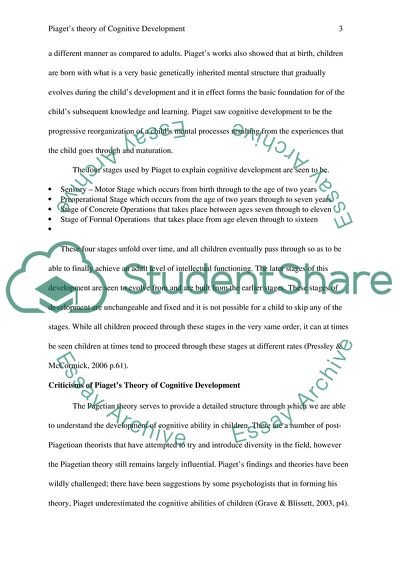Cite this document
(Critique of Piagets Theory of Cognitive Development Research Paper Example | Topics and Well Written Essays - 1500 words, n.d.)
Critique of Piagets Theory of Cognitive Development Research Paper Example | Topics and Well Written Essays - 1500 words. https://studentshare.org/psychology/1814889-critically-evaluate-piagets-theory-of-cognitive-development
Critique of Piagets Theory of Cognitive Development Research Paper Example | Topics and Well Written Essays - 1500 words. https://studentshare.org/psychology/1814889-critically-evaluate-piagets-theory-of-cognitive-development
(Critique of Piagets Theory of Cognitive Development Research Paper Example | Topics and Well Written Essays - 1500 Words)
Critique of Piagets Theory of Cognitive Development Research Paper Example | Topics and Well Written Essays - 1500 Words. https://studentshare.org/psychology/1814889-critically-evaluate-piagets-theory-of-cognitive-development.
Critique of Piagets Theory of Cognitive Development Research Paper Example | Topics and Well Written Essays - 1500 Words. https://studentshare.org/psychology/1814889-critically-evaluate-piagets-theory-of-cognitive-development.
“Critique of Piagets Theory of Cognitive Development Research Paper Example | Topics and Well Written Essays - 1500 Words”. https://studentshare.org/psychology/1814889-critically-evaluate-piagets-theory-of-cognitive-development.


